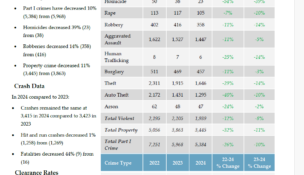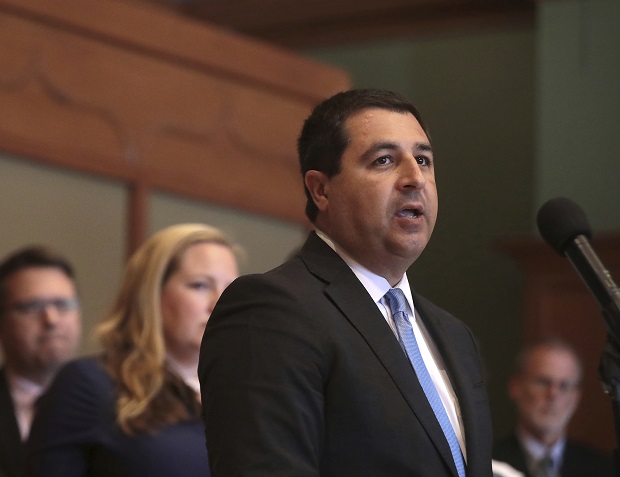Court imposes $5,000 sanction for late brief
By: dmc-admin//June 16, 2008//
The price for filing a late brief in the Seventh Circuit is steep — $5,000 for the former chairman of the Board of Police and Fire Commissioners in Cicero, Illinois.
The chairman, Clarence Gross, filed suit against the town, contending that his removal violated the First Amendment and the Equal Protection Clause.
After losing at trial, he appealed, and his brief was due in January 2007. The Seventh Circuit granted numerous extensions until, on Mar. 6, 2008, it gave him until April 21 to file, adding that no further extensions would be granted, and that failure to file would result in dismissal for failure to prosecute.
A brief was not received until April 25, and the appeal was dismissed as promised.
Gross then moved for reconsideration, contending that the brief was completed on April 21, but because of employee error, was not given to the courier until April 25.
The town asked that the motion be denied, and thus, the appeal dismissed, but, in an opinion by Judge Frank H. Easterbrook, the court declined.
Easterbrook explained, “Small shortcomings should not be treated the same as serious ones; otherwise people will take excessive care to avoid small injuries, while there will be no marginal deterrence of more serious problems.”
Gross asked for no sanction at all, but the court declined that option as well.
Easterbrook wrote, “At the same time, the right response to carelessness of the sort exhibited here is not to say ‘never mind’ and proceed as if everything had been done properly. Then deadlines would be toothless.”
Because both the court and the town were inconvenienced by the delay, and by the false certificate stating the brief had been timely filed, the court concluded that a financial sanction was appropriate.
Finding that inconvenience and legal time have monetary equivalents, the court ordered Gross to pay $5,000 (half to the court, and half to the town), within 10 days, or the case would be dismissed.
Justifying the amount, the court wrote, “We do not pretend that $5,000 is a figure reached by exact calculation, but it is enough to lead to more care in the future, without being too large in relation to the normal legal costs of handling an appeal.”
Analysis
The sanction imposed is remarkably high compared to other sanctions the court has imposed.
In Aircraft Owners & Pilots Ass’n. v. Hinson, 102. F.3d 1421 (7th Cir. 1996), the court imposed only a $100 sanction for filing a late brief. That case also had the aggravating factor that, after the clerk’s office initially rejected the late brief, the briefs were found the next morning strewn about the floors of the Dirksen Federal Building.
In the Matter of Pritzker, 762 F.2d 532 (7th Cir. 1985), the court imposed a sanction of only $1,000 on an attorney who repeatedly failed to file a brief, in a criminal case.
Recently, in Thomas v. Guardsmark, LLC, 487 F.3d 531 (7th Cir. 2007), the court imposed only a $1,000 sanction for filing an incorrect jurisdictional statement.
Those sanctions are distinguishable, though, in that they must be paid. Here, the decision whether to pay the sanction rests with the party. He need only pay if he wishes to pursue his appeal.
The question is whether the high sanction here will stand as a benchmark in future cases.
On the one hand, the brief was filed only four days late. On the other hand, the appellant was given numerous extensions (roughly 15 months worth).
It is remarkable that the court would grant so many extensions in the first place, but the extensions, having been granted, should not be an aggravating factor in setting a sanction.
However, Anne Kearney, of Appellate Consulting Group, in Milwaukee, and the Wisconsin Chair of the Seventh Circuit Bar Association’s Committee on Rules & Practice, does not believe it will serve as a benchmark.
“I don’t believe it will come up all that often,” Kearney said, noting she believes the large number of extensions clearly played a role in the size of the sanction. “I have to believe the amount is a reflection that they got every break in the book, but nonetheless, couldn’t file on time.”
“I think the court thought it was being taken advantage of,” Kearney said.
Kearney suspects that future sanctions won’t be that large, because it is extraordinary that so many extensions to begin with. In addition, “I think people will get the message,” she said.
Legal News
- MPD: Milwaukee homicides down nearly 40 percent compared to last year
- EVERS: Republican lawmakers No-Show at special meeting to release statewide PFAS funding, stabilize healthcare access
- Wisconsin ICAC Task Force conference on Missing and Exploited Children highlights increase in sextortion cases
- More than 300 Wisconsin officers back in law enforcement after being fired or forced out
- Former Trump staffer who said to ‘fan the flame’ after 2020 loss hired to lead Wisconsin GOP
- Gov. Evers appoints David Casey to Serve as DOR Secretary
- FBI launches criminal investigation into Key Bridge collapse
- Man charged in slaying after woman’s leg found at Milwaukee-area park
- Minnesota man guilty in fatal stabbing of teen on Wisconsin river, jury finds
- Wisconsin teen sentenced in bonfire explosion that burned at least 17
- Wisconsin man who broke into home, ate victim’s chicken, slept in victim’s bed, receives prison and jail sentences
- Judge refuses to dismiss Hunter Biden’s gun case
WLJ People
- Power 30 Personal Injury Attorneys – Russell Nicolet
- Power 30 Personal Injury Attorneys – Benjamin Nicolet
- Power 30 Personal Injury Attorneys – Dustin T. Woehl
- Power 30 Personal Injury Attorneys – Katherine Metzger
- Power 30 Personal Injury Attorneys – Joseph Ryan
- Power 30 Personal Injury Attorneys – James M. Ryan
- Power 30 Personal Injury Attorneys – Dana Wachs
- Power 30 Personal Injury Attorneys – Mark L. Thomsen
- Power 30 Personal Injury Attorneys – Matthew Lein
- Power 30 Personal Injury Attorneys – Jeffrey A. Pitman
- Power 30 Personal Injury Attorneys – William Pemberton
- Power 30 Personal Injury Attorneys – Howard S. Sicula











